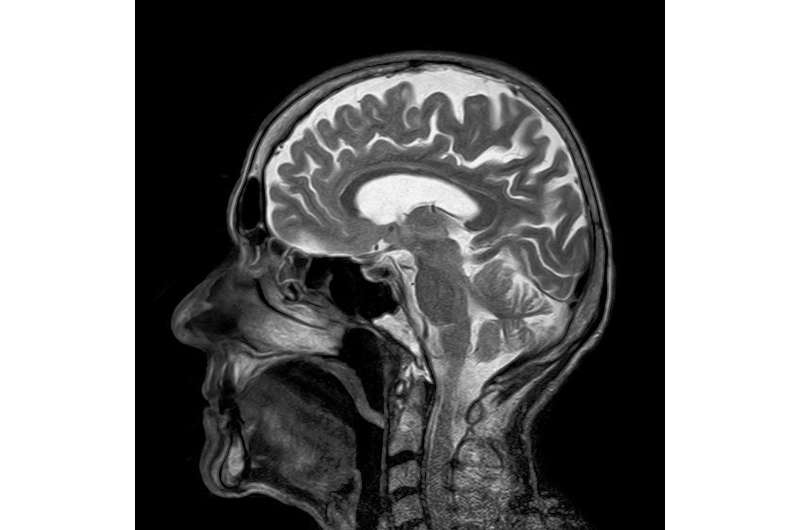October 11, 2018 report
First two papers based on studies using full set of data in the UK Biobank published

Two teams of researchers have independently published papers describing research conducted using the full set of data in the UK Biobank—both in the journal Nature. The first team comprised researchers from the U.K., Australia and Switzerland—they searched the Biobank looking for associations between genetic variants and features that could be used to fill in gaps in the data. The second team consisted of researchers from Oxford University—they used the Biobank to compare genetic data with an associated 10,000 MRI brain scans. Nature has also published a News and Comment piece by staff writer Matthew Warren—he outlines another way the Biobank and others like it are being used for gene-based research efforts. The two papers are the first to be published describing studies conducted using the UK Biobank.
The UK Biobank is a database that holds genetic data for approximately 500,000 people (between the ages of 40 and 69) living in the U.K. It also includes other data for the same individuals that describe lifestyle, body type and test results done on saliva, blood and urine—as a bonus, it also has thousands of MRI scans. The Biobank started back in 2006, and was put together by a team that will continue to add new data obtained from the original volunteers over the next 30 years. It is based in Manchester, England.
In the first study, the researchers used genotype imputation (a statistical procedure) on markers in the Biobank to fill in gaps in the data. This is expected to assist future researchers who use the Biobank in their efforts. In the second study, the researchers compared genetic information in the Biobank with MRI scans from the same volunteers, looking for patterns. They report that they connected 150 individuals with brain disorders or other abnormalities that showed up on an MRI where relationships were found. They also found connections for genetically based diseases such as multiple sclerosis, which they linked to genes in white matter.
The UK Biobank is expected to be an important tool for genetics researchers in the coming decades due to its size and variety of date. Iit will be open to anyone who wishes to use it at no cost.
More information: Lloyd T. Elliott et al. Genome-wide association studies of brain imaging phenotypes in UK Biobank, Nature (2018). DOI: 10.1038/s41586-018-0571-7
Clare Bycroft et al. The UK Biobank resource with deep phenotyping and genomic data, Nature (2018). DOI: 10.1038/s41586-018-0579-z
© 2018 Medical Xpress


















